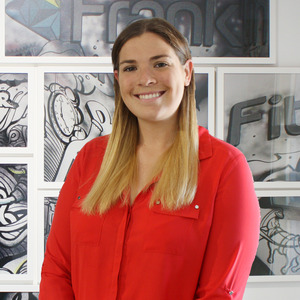
Tech Talent Spotlight Series: Alaina Percival
16 Dec, 20245 minutesAlaina Percival, I Board member | Tech CEO | Venture Investor | Co-founder of Women Who...

Alaina Percival, I Board member | Tech CEO | Venture Investor | Co-founder of Women Who Code | YC16 | Strategic Growth
Alaina Percival is a dynamic leader and innovator in the technology sector. She has worn multiple hats as a board member, Tech CEO, Venture Investor, and Strategic Growth Expert. As the Co-founder and previous CEO of Women Who Code, Alaina has been instrumental in building a global nonprofit dedicated to inspiring women to excel in technology careers. Under her leadership, the organization has grown to serve over 290,000 members across 134 countries, offering thousands of free technical and leadership events annually.
A graduate of Y Combinator's 2016 cohort, Alaina has leveraged her expertise to drive meaningful change in the tech industry. Her role as a Venture Partner at Valor Ventures allows her to invest in and support promising early-stage software companies focusing on inclusion and diversity.
Alaina's influence extends beyond her primary roles. She is an accomplished speaker, presenting at high-profile events such as WSJ.d Live, Grace Hopper, and MIT's Venture Capital and Innovation Conference. Her insights have been featured in major publications, including Forbes, Wall Street Journal, and Wired.
With a master's degree in organizational management and an MBA, Alaina brings a wealth of knowledge to her various positions. Her experience spans corporate brand management to tech entrepreneurship, making her a versatile and respected figure in the industry.
As a passionate advocate for advancing women's careers, wealth, and influence in technology, Alaina continues to shape the tech industry's future through her leadership, investments and commitment to diversity and inclusion.
1. Can you introduce yourself and share the journey leading to your current career path?
My career journey is a testament to the power of resilience and adaptability. It began in Germany, where I spent a year on a congressional scholarship. This was followed by a four-year stint at Puma, a period that laid the foundation for my understanding of business. My thirst for knowledge led me to pursue an MBA through a dual degree program at the Sorbonne and Georgia State University.
After that, I worked for a small women's performance footwear company. It was there that I really started to understand technology's impact on business. Shortly after that, I had the opportunity to move to the Bay Area. By that point, I had built a strong career, and I thought, "I want to give this tech thing a try."
I worked in product companies at the intersection of technology rather than directly in technology roles. When I started looking at jobs in the Bay Area, people scratched their heads and said, "Puma? The shoe company? What about Microsoft, Google, Facebook?" So, I started learning to code and getting involved in the tech community.
I saw this glaring opportunity: fewer than 5% of people in top leadership technology roles were women. At the same time, I had been seeing how technology was transforming traditional business. In my mind, every company was becoming a technology company, which, fast-forward 10 to 15 years, has been the case.
I recognized a need to engage more women in the tech industry and help them envision and pursue pathways to leadership. So, I started building the Women Who Code. Women Who Code became a Y Combinator-backed organization, and I led it as CEO for over ten years. Around 2016, I began angel investing and became a scout for a couple of venture capital firms.
Whenever people ask me what I want to do next, I say I am head down because I love what I do. But if I had more time, I would support entrepreneurs—especially diverse ones—and encourage them to adopt diverse practices within their organizations early on. It is not effective to wait until they have one hundred engineers and one woman before asking how to diversify; the time to do it is from the beginning.
That brings me to where I am today; I am a venture partner for a woman-founded venture capital firm based in Atlanta, Georgia. I am also still a scout for a German venture capital firm called Pikus Capital, which has a global focus.
2. Have you experienced a particularly significant career-defining moment?
I will start by saying I love challenges. I love the idea of reinventing myself, but I need to go uphill to reach my next goal. I would just point back to the moment I mentioned when I was getting involved in the tech industry and saw no women in leadership roles.
When I think about the representation I would like to see broadly in leadership – in the world – whether that is technical, business, or political – I would like to see a strong representation of women there. So, that was a pivotal moment for me in my path and in defining decisions I would make about my career going forward.
3. How has gender inclusion in the workplace evolved since the start of your professional journey?
It was not something significantly discussed early on in my career. Then, as I was starting Women Who Code, it became part of the zeitgeist of talking about getting women and girls into the tech industry. What I saw there was, if we're only talking about teaching girls to code and teaching women to code, it was actually a threat to the women already in the industry who were facing their own bias and constantly needing to prove themselves that "Hey, I am actually technical." So, bringing that into part of the conversation and being part of this moment where technology companies said, "Okay, we're going to have to do a DE&I report."
It now feels as though everyone is pulling back. I am heading in the industry because talking about inclusion and equity is no longer supported in the workplace as it was 15 to 2 years ago. There is a big pushback on it now, and it is painful to see some of that progress being lost.
4. Why is it not being spoken about?
I cannot entirely identify why this is happening, but it has certainly become highly politicized. There is definitely a shift away from the true purpose of inclusion. It's not about making someone win and someone lose. It is about lifting everyone up and seeing success for products by having diverse thoughts when producing them. It is about having more people succeed inside companies so that more wealth is generated and more people can go on to create more companies. It is not really about having a winner or a loser.
It is actually about seeing more equity because women are half the population. We would like to see the same number of women succeeding in their careers and making it to leadership roles as we do other genders. It is about having representative leadership alongside all genders.
5. Approximately 56% of women in technical roles leave their jobs at the peak of their careers, leaving an underrepresentation of women in industry. Why do you think so many women are exiting the tech industry, and what factors contribute to this disparity?
One of the biggest factors is the really small things that happen throughout your career. For example, when someone says, "Oh, women don't make good leaders," or "You're not going to be a good leader," it is easy to dismiss that as simply wrong. You can externalize it and see it as someone else's bias.
However, when these small incidents accumulate – like seeing your male counterpart getting promoted because someone can see their potential – it becomes much harder to externalize. You start to think, "Is it society's bias and the structures in place that have helped them be seen as a leader while I am just as qualified?"
These smaller instances are more challenging to identify and externalize, leading to self-doubt and causing you to expend energy on thoughts that detract from enjoying your job and career. You might say, "This internalized thinking is based on the messages society sends me and what I've learned to tell myself."
I often advise people who feel they are not good enough for promotion: if you are completely comfortable in your job, you have probably stayed in it too long. That feeling of inadequacy is a sign of growth potential. If you want to advance in your career, feeling like you are not quite good enough is a natural part of the process. You may only be pushing yourself to grow if you feel somewhat confident.
6. How is your organization working to ensure more women pursue and sustain software careers?
I am now working with an organization called Valor Ventures. At Valor Ventures, we focus on having a strong pipeline of diverse founders. It is slightly different from the question, but it supports what I have told companies all along: continuously check your pipeline for bias.
When you find the breakpoint, you need to figure out how to break down some of that bias and ensure you are looking at candidates or companies you are considering investing in with a strong representation of diverse individuals. Wherever you start to see the breakdown – whether it's seeing them for the first time, which means you need to make sure you're reaching more people, or that first interview session or that first review to get someone into your investment pipeline – it that's where they're not making it through, look at it.
Are we asking the wrong questions? Are we asking biased questions? What is taking place that is causing that breakdown in the pipeline?
Valor is very dedicated to seeing a truly diverse slate of companies and then investing in the best ones. We examine each stage of our processes to ensure we are not inadvertently excluding promising, diverse founders. It is about creating opportunities and then selecting based on merit, ensuring that our pipeline remains inclusive throughout.
7. Why is it so crucial to close the skills gap in technology, and what can businesses do to make this happen?
Internally, this is important because the best thing companies can do is invest in their incredible talent to upskill and grow within their organization.
Certainly, engaging in external training is crucial. Allocating budgets and time for employees to attend conferences, whether virtual or in person, is a crucial opportunity for building knowledge. Encouraging people within the organization to speak at conferences is fantastic as well.
It is a great recruiting opportunity because the most talented engineers are in such high demand. When you see thought leadership and that engineers are supported to share their expertise, it is an excellent way to attract talent to your company.
By investing in your current employees' growth and visibility, you are not only enhancing their skills but also showcasing your company culture. This approach demonstrates that you value professional development and provides platforms for your team to shine. It is a win-win: your employees grow, and your company becomes more attractive to top talent in the industry.
8. As a leader, what significant changes would you like to see in the tech industry to support and empower women better?
I would love companies to have strong, clear KPIs around inclusion in the tech industry and then thoroughly examine all their policies and practices, evaluating them for inclusivity. Just because something was always done a certain way does not mean it needs to be done that way anymore.
The tech industry is innovative in many ways, but we also too easily fall into how society is structured and how we work within organizations. You know, just as much innovation can occur in corporate and startup structures as in every other aspect of the tech industry and all industries.
We have this incredible opportunity to reimagine how we work, collaborate, and build inclusive environments. The tech industry has been at the forefront of disrupting traditional models in various sectors, so why not apply the same innovative thinking to our organizational structures and practices? By setting clear, measurable goals for inclusion and constantly challenging our assumptions about "how things are done," we can create diverse, equitable, creative and productive workplaces.
9. Reflecting on your career journey, what advice would you give someone thinking about career opportunities in technology?
I recommend that people make connections and find community when just starting. Everyone is so accessible right now with LinkedIn and social media, and people will often help you if you can make it extremely easy for them to do so.
I recommend going on LinkedIn, thinking about your twenty dream companies that you would be happy to work for, and finding someone who is either doing the same level job you want to do or just on two levels above that. Reach out to them and say, "Hey, could we do a Zoom coffee chat?" or if the person's local, "Could I meet you at a coffee shop close to your office for a 15-minute conversation?"
Come with very clear questions, like, "Tell me what you like about working in this company," or "What helps someone be successful in your organization?" At the end, make sure you have a clear ask. For example, "I saw this person was in your network. Would you be willing to connect me with them?" Make it super easy for them to do.
You could say, "If I see a job opening at your company, will you be willing to refer me?" Many companies incentivize their employees to refer candidates, so it is a great opportunity to have an insider who will help support you on your pathway. If you can do that and reach a person or two out of your twenty companies, you will have a very easy time getting that first job.
Remember, networking is about building genuine relationships. Respect people's time, show genuine interest in their experiences, and always follow up with a thank you note. This approach helps you gather valuable insights and starts building your professional network from the ground up.
Thank you, Alaina, for sharing these insightful perspectives. Your experiences and guidance are invaluable for women navigating the technology industry. I appreciate you taking the time to contribute to this series.






